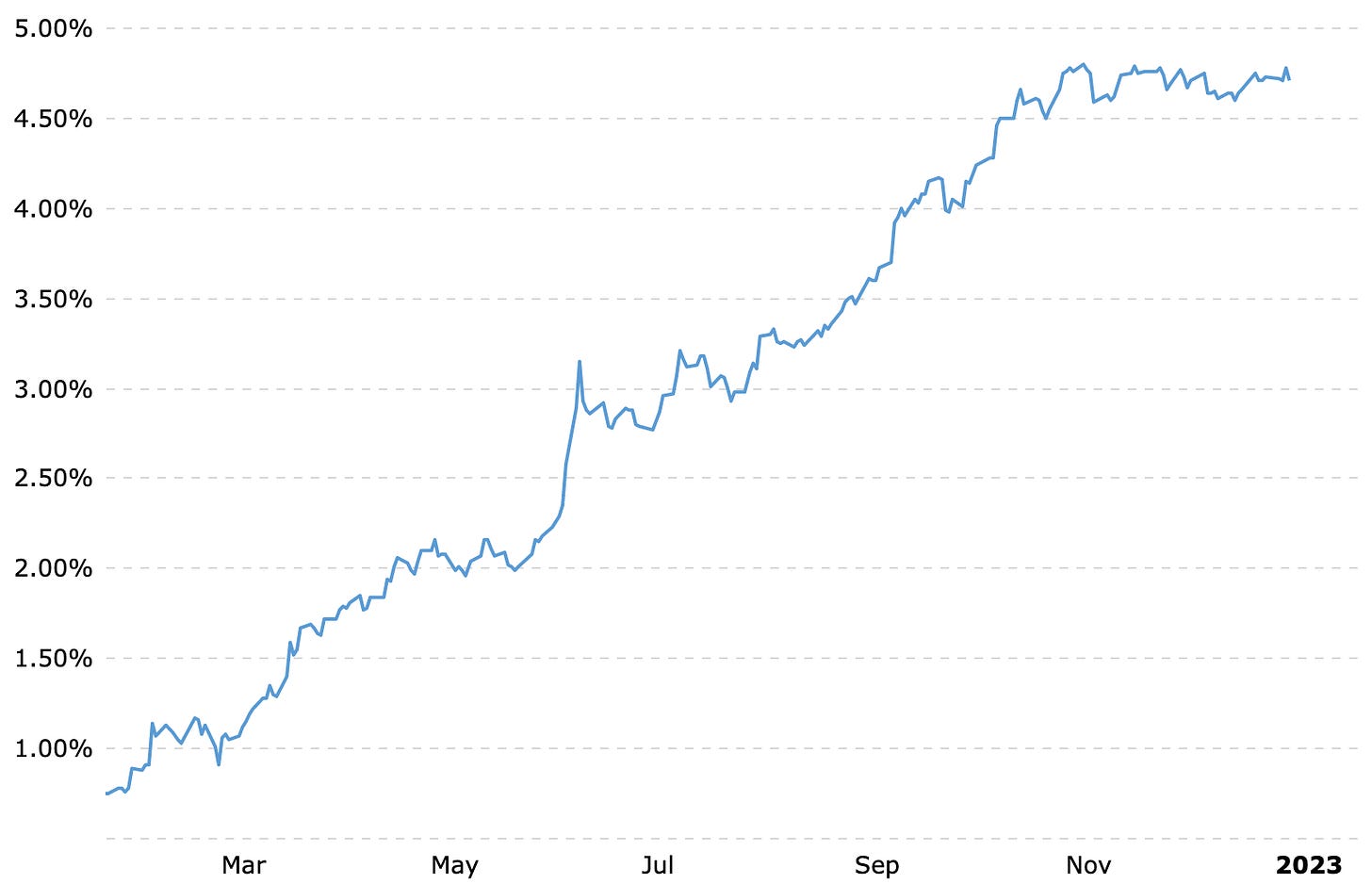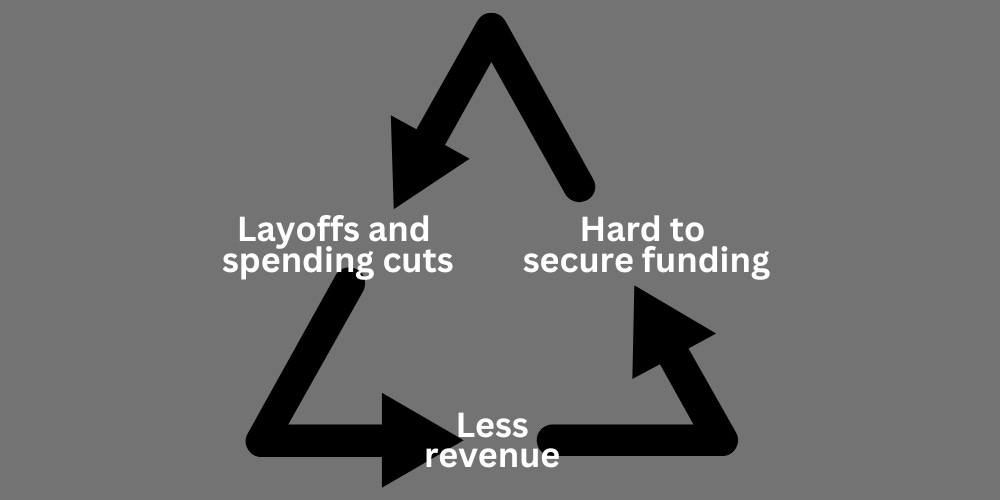Why Tech Company Valuations Have Tumbled
It's all about the rising interest rates, but how does it affect the valuation?
I’ve heard many times that tech company valuations have significantly gone down due to rising interest rates.
However, I couldn’t find a proper article that easily explains how interest rates affect their valuations, so I did some research myself and would like to share it with you.
First, how is a company’s current valuation calculated?
A company is worth the present value of some cash flows that it will produce in the future. We can calculate this value by projecting future free cash flows and discounting them back to the present.
The discount rate refers to the minimum rate of return necessary to invest in a company. For example, if company X is expected to produce a $110 cash flow after 2 years (disregarding all the other cash flows) and the discount rate is 10%, the current valuation is:
It’s a vastly simplified example, but the bottom line is that if the discount rate increases, the company valuation goes down.
What’s the effect of rising interest rates?
If interest rates rise, so too should discount rates since we would have more opportunities to do more with our money elsewhere.
For example, high interest rates encourage people to save more money in their savings accounts to earn interest instead of investing in stocks or spending money. If they were to invest in a company, they want a higher minimum rate of return, which is a higher discount rate. So the valuation of a company goes down.
Rising interest rates also affect VCs that invest in startups. Most VCs’ funds come from pension funds, banks, and insurance companies that look for investments that will yield a good rate of return without requiring undue risk (source: SimpleStartup).
When the rates begin to creep up, those investors who flocked to VC funds become less willing to take the associated risk if they can find a more appealing place to deploy their capital for a better risk reward. For example, the Treasury bill rate increased from 0.5% to 4.5% the past year so they can now deploy their capital on T-bill, one of the safest investments, to earn a good 4-5% interest.
As a result, VCs have a hard time closing their funds to invest in startups so less amount of money flows into the startups. Startups struggle to secure funding at a price that was available during the low-interest rates era, so their valuations end up going down.
Okay fine. Then why do high interest rates affect tech companies more?
It’s because tech companies and startups usually take several years to generate cash flows that justify their previous valuation with a lot of expectations and hype during the low-interest rates era.
During the low-interest rates era, those companies could justify their massive valuations due to the low interest and discount rates and high expectations of producing a lot of cash flows in several years.
But now, the increased interest rates and discount rates significantly lower their valuations since their valuations are discounted several years with high discount rates.
More bad news for not-yet-profitable startups.
Non-profitable startups that have relied on growth now struggle to raise more money since VCs have become hesitant to fund companies that lose money every year.
Those startups then have to cut internal costs through layoffs and spending cuts. The team size will decrease and it’ll probably lower their revenue and growth, making them even harder to raise the next round of capital.
What’s going to happen this year?
“Growth at all costs” won’t be a trend anymore. “Growth with profitability” will be a new trend. Growth will slow down for most tech companies and their valuation will be cut significantly. Even after the global economy shows the sign of a recovery, which seems quite unlikely in the short run, it’ll take time for them to restore their previous valuations.
Thanks for reading and have a great day 😊
Not financial or tax advice. This newsletter is strictly educational and is not investment advice or a solicitation to buy or sell any assets or to make any financial decisions. This newsletter is not tax advice. Talk to your accountant. Do your own research.






